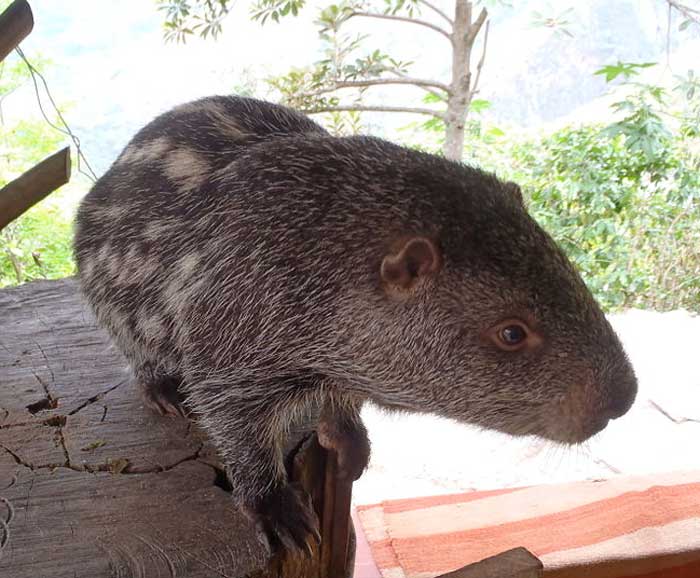Dinomys branickii Cladus: Eukaryota Name Dinomys branickii Peters, 1873 Vernacular names References * Dinomys branickii in Mammal Species of the World.
The Pacarana (Dinomys branickii) is a rare and slow-moving nocturnal rodent found only in tropical forests of the western Amazon River basin and adjacent foothills of the Andes Mountains from northwestern Venezuela and Colombia to western Bolivia, including the yungas. One place that it is common is Cotapata National Park in Bolivia.[1] It is known as the pacarama (false paca) by native Indians due to its superficial similarity to a different caviomorph rodent, the paca. It is a hystricognath rodent, and the sole extant member of the family Dinomyidae in Caviomorpha; initially, it was placed with true mice. Some evidence places the pacarana as closely related to the prehistoric giant rodents that inhabited South America several million years ago, such as Phoberomys pattersoni and Josephoartigasia monesi. It has a chunky body and is large for a rodent, weighing up to 15 kg (33 lb) and measuring up to 79 cm (31 in) in length, not including the thick, furry tail. References 1. ^ a b Tirira, D., Vargas, J. & Dunnum, J. (2008). Dinomys branickii. In: IUCN 2008. IUCN Red List of Threatened Species. Downloaded on 5 January 2009. Source: Wikipedia, Wikispecies: All text is available under the terms of the GNU Free Documentation License |
|


